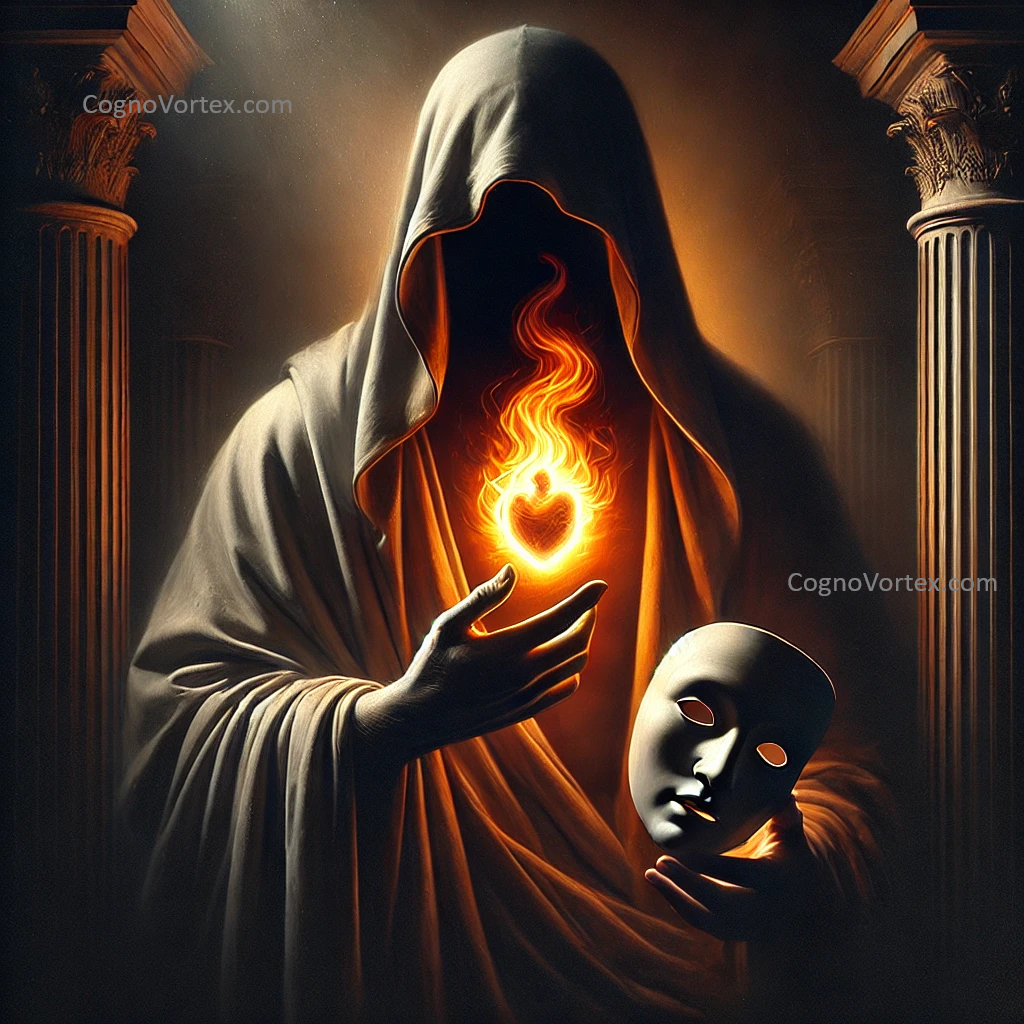Set me as a seal upon your heart, as a seal upon your arm, for love is strong as death, jealousy is fierce as the grave. Its flashes are flashes of fire, the very flame of the Lord. ~Song of Solomon 8:6
In the shadows where he had once found refuge, the Son stood, glancing outward and backward in near balance, yet always teetering, seeking that impossible symmetry of yearning and satisfaction, knowing all the while that the search only outlined its absence. For years, he had looked up toward the idea of God like a child grasping at flickers, hopeful for permanence in a truth that remained silent, perhaps intentionally so.
In the silent space, the Son’s longing was a petition to become one with the Father. The Father was no mere notion to him; this was fire—something he could feel but not seize. This fire was also the center he called “God,” not as the object of his search but as the spark that kept his seeking alive, a flickering force that took root in him as hunger, desire, and prayer, even as it rebuffed every approach. This was not a matter of receiving answers but of learning to kneel in a stance of reverent petition, each inquiry met with silence, each silence urging him further inward.
There came a shift, subtle as a forgotten dream. His prayers once sharp with demand grew steady, his questions beginning to carry their own weight. As though nearing the edge of something profound, he began to feel not as a son demanding his father’s recognition but as a participant in a mystery woven of silence and restraint. The experience, faint but vivid, was that of the Father—yet it was also his own; the petition had shaped itself into an acknowledgment.
Thus, the Son transformed, not by an answer but by the form that longing took within him. The fire that had always been there was no longer only his Father’s; it was his own, recognizable yet humbling. Each breath felt drawn from embers barely cooled, each word a reminder that language was only a mask, the sum of countless others. These words glowed, casting him in shadows and leaving only the softest afterglow—an outline, an implication of what had been known before.
As a memory of God rather than as God himself, he stood as both witness and bearer of that fire. He knew the masks he wore as placeholders, each concealing the Father’s face and his own. He did not despise them, nor did he covet them; he understood that they existed to preserve the shape of his question even when no answer was required, and to glow with the embers of his own mortality.
His former estrangement had been as one juggling concepts—names and phrases that flew from his grasp as quickly as they had been seized. Now, however, his estrangement had grown sharp with awareness. The masks he handled were not merely expressions of ignorance but necessary shadows to give the fire its contrast, each one illuminating, by obscuring, the space of encounter. He did not crave union in the sense of ultimate resolution. Instead, he found a path within the paradox itself: to remain forever near, within reach, and yet far enough to respect the weight of his question more than any answer he might presume.
And so, he stood beside the fire. The Father was not an abstraction but the core of this consuming glow, an inner conflagration that neither severed nor smothered but allowed itself to be understood in glimpses, a warmth reminding him always of his own need for shelter. He breathed over the embers, knowing they were a memory of an answer too great to be contained but luminous enough to guide, to grant him this momentary pulse of grace.
And still, he knelt, less for himself than for the fire that would never consume him fully, yet would never let him forget the eternal ache that led him here.
